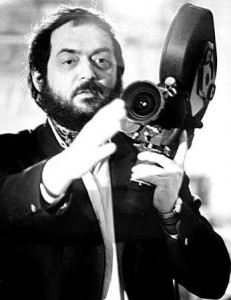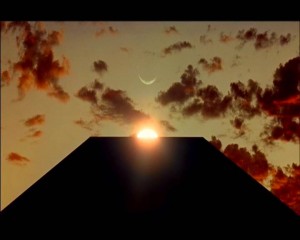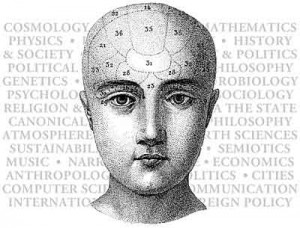The legacy of Stanley Kubrick includes such classic films as “Paths of Glory,” “Clockwork Orange’ and “The Shining” in his legacy. When he was asked whether his greatest film, “2001: A Space Odyssey” was a religious film, he replied: “I will say that the God concept is at the heart of 2001, but not any traditional, anthropomorphic image of God.”
 He added, “I do believe that one can construct an intriguing scientific definition of God, once you accept the fact that there are approximately 100 billion stars in our galaxy alone, that each star is a life-giving sun and that there are approximately 100 billion galaxies in just the visible universe…the odds of some proportion of such life developing intelligence are high.”
He added, “I do believe that one can construct an intriguing scientific definition of God, once you accept the fact that there are approximately 100 billion stars in our galaxy alone, that each star is a life-giving sun and that there are approximately 100 billion galaxies in just the visible universe…the odds of some proportion of such life developing intelligence are high.”
The latter part has become the consensus view of most astronomers and astrobiologists. In that, as in other things, Kubrick was ahead of his time.
This touches on two ancient questions of humanity, which urgently need new insight in our quickening digital age. Setting aside the question of whether there is God (not ‘a God’), is there a common thread between sentient (that is, creatures conscious of consciousness) in the universe?
The obvious answer is that we won’t know until and unless humankind has undisputed communication from or with extraterrestrial intelligent life. But it may well be that there can’t be indisputable communication with another intelligent species until our species crosses a minimal threshold of intelligence, defined not by science and technology, but by inward and spiritual development.
At present, humankind is heading in the opposite direction, eroding the soil of countless generations of ‘man,’ without a transmutation awakening a new human being.
I see man as including the prehistoric and agricultural ages of diverse cultures, languages and traditions. The human being, on the other hand, has awakened to insight and is learning continuously, in a completely different way than the accretion of knowledge and experience.
The pace of man’s outward change really began to quicken with the Industrial Revolution, but it wasn’t until the digital age, with its increasing connectivity and interconnection on a global scale, that tradition became not only irrelevant, but an impediment to psychological revolution and spiritual advancement.
With decreasing diversity around the world, that’s where we stand at present as a species. The old species has  passed away in the blink of an eye, yet no breakthrough ushering in a new human species has occurred. Inward deadness has become a contagion, originating in and driven by the West, metaphorically expressed in movies like “World War Z.”
passed away in the blink of an eye, yet no breakthrough ushering in a new human species has occurred. Inward deadness has become a contagion, originating in and driven by the West, metaphorically expressed in movies like “World War Z.”
Is zombification a Western phenomenon, or a global contagion? And if the latter, could the land of its leading edge—America—be the place where an obsessively outward orientation finally turns, in a balanced way, to inward awakening?
Reflecting on the basic difference between the West and the East, exemplified respectively by modern America and ancient India, it’s clear that the West has developed science, technology, organization, communication and war to a very high degree. Demonstrating a completely different direction, the East, until the last few decades, nurtured a vast inward richness, exemplified by the Buddhas, Upanishads, etc.
For young people, Western society has become a competitive madhouse of continuous striving after hollow rewards, which few even question. An utterly empty hookup culture emerged in North America about a generation ago, and has become routine. No wonder many young people resemble cynical 40-year olds before they’re old enough to legally drink.
The situation seems hopeless, but the very hopelessness is propelling more and more people, younger and older, to look for creative and life-affirming ways of surviving and growing amidst the corporate ennui. An entrepreneurial compulsion can stave off the deadness for a while for the few, but even Silicon Valley success has little meaning in a global sea of poverty, conflict and environmental degradation in which everyone now swims.
 The Western mind has dead-ended, but it is still globalizing. Can the outward movement of more than two thousand years in the West turn inward in a true sense, without losing the scientific impulse? Can the Western mind be infused with insight, while retaining its scientific and engineering prowess? That would make it an altogether new mind in human history.
The Western mind has dead-ended, but it is still globalizing. Can the outward movement of more than two thousand years in the West turn inward in a true sense, without losing the scientific impulse? Can the Western mind be infused with insight, while retaining its scientific and engineering prowess? That would make it an altogether new mind in human history.
Attempts to import Eastern thinking have failed to halt the contagion of inner numbness, and may, due to the superficiality and barrenness of grafting Eastern ways onto dying Western trunks, have added to it. A huge retreat industry has sprung up, but with few exceptions, there’s little substance, and certainly no deep regenerative effect.
An honest and unvarnished appraisal of the West indicates that we are regressing rather than advancing inwardly, and taking the whole of humanity with us. It may not be as simple or final as that, but the basic fact has to be faced before a potentiality can be perceived and roused, in us as individuals, and in the culture.
A tremendous paradox of spiritual growth is that it only advances through negation, never through positive movement, even of knowledge. Indeed, inward growth isn’t a function of knowledge at all, something intellectuals have a very difficult time grasping, even intellectually.
Until a creative explosion occurs generally, what is the alternative to the morass and malaise for us as individuals? First, one has to see the falseness in the pervasive idea of personal choice. People who blindly act out of conditioning and darkness are not autonomous; they’re controlled by conditioning and darkness. People who have awakened see that there is no choice except self-knowing, learning and change.
Taking time to attend to the chaotic, chattering movement of conditioning and darkness in the present (without concentration or choice) widens the spaces between the associations of memory, allowing insight and understanding to grow in a movement of negation. There is a quieting and emptying of the contents of the mind and heart, if only for a few timeless minutes a day, and one wordlessly perceives something beyond thought.
With respect to Kubrick’s sense of God, he felt there was something beyond the human mind. That’s about all anyone can say. One often feels an indescribable otherness, but I have doubted whether it has anything to do with humanity.
Faith, which isn’t my strong suit, maintains that it does. Clearly, insight can only be awakened within human beings, and flow into human consciousness and the world through us.
Martin LeFevre

